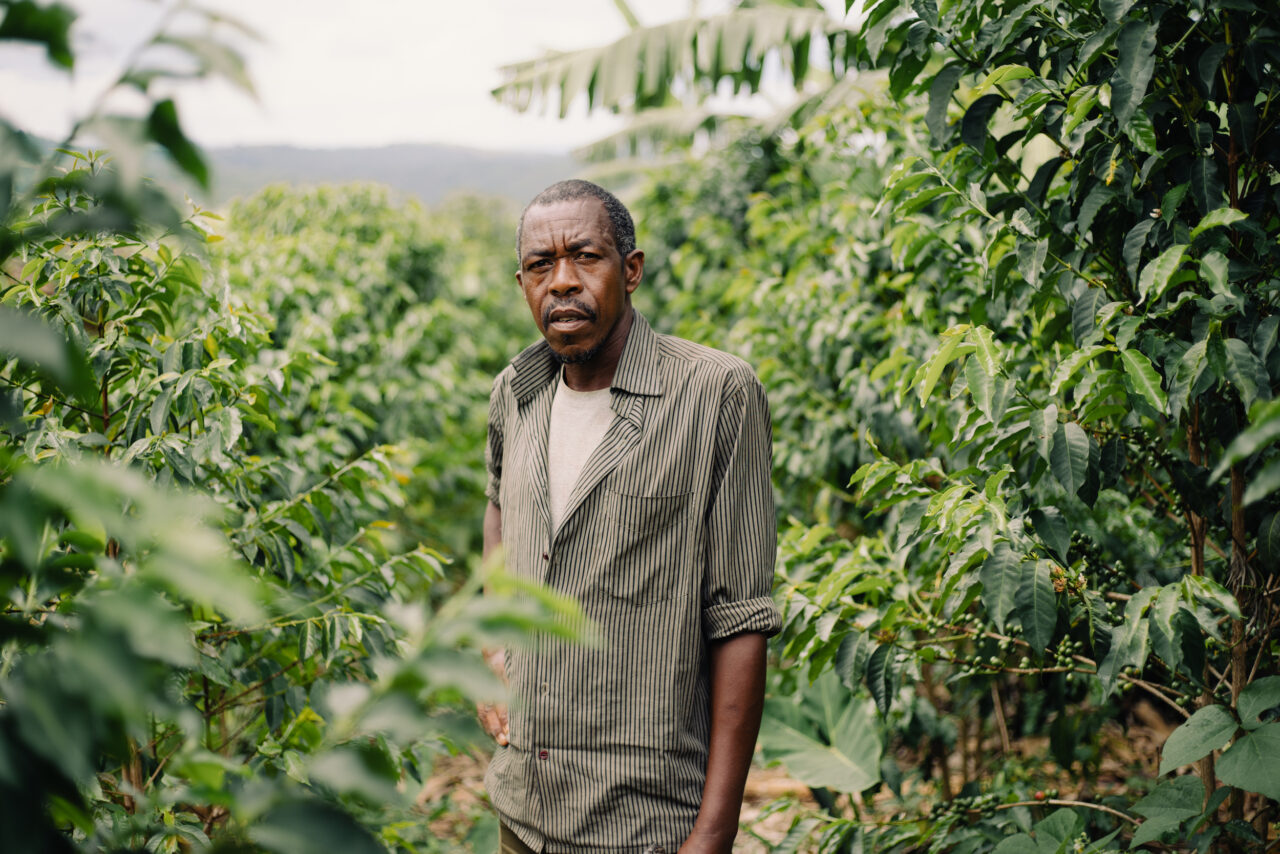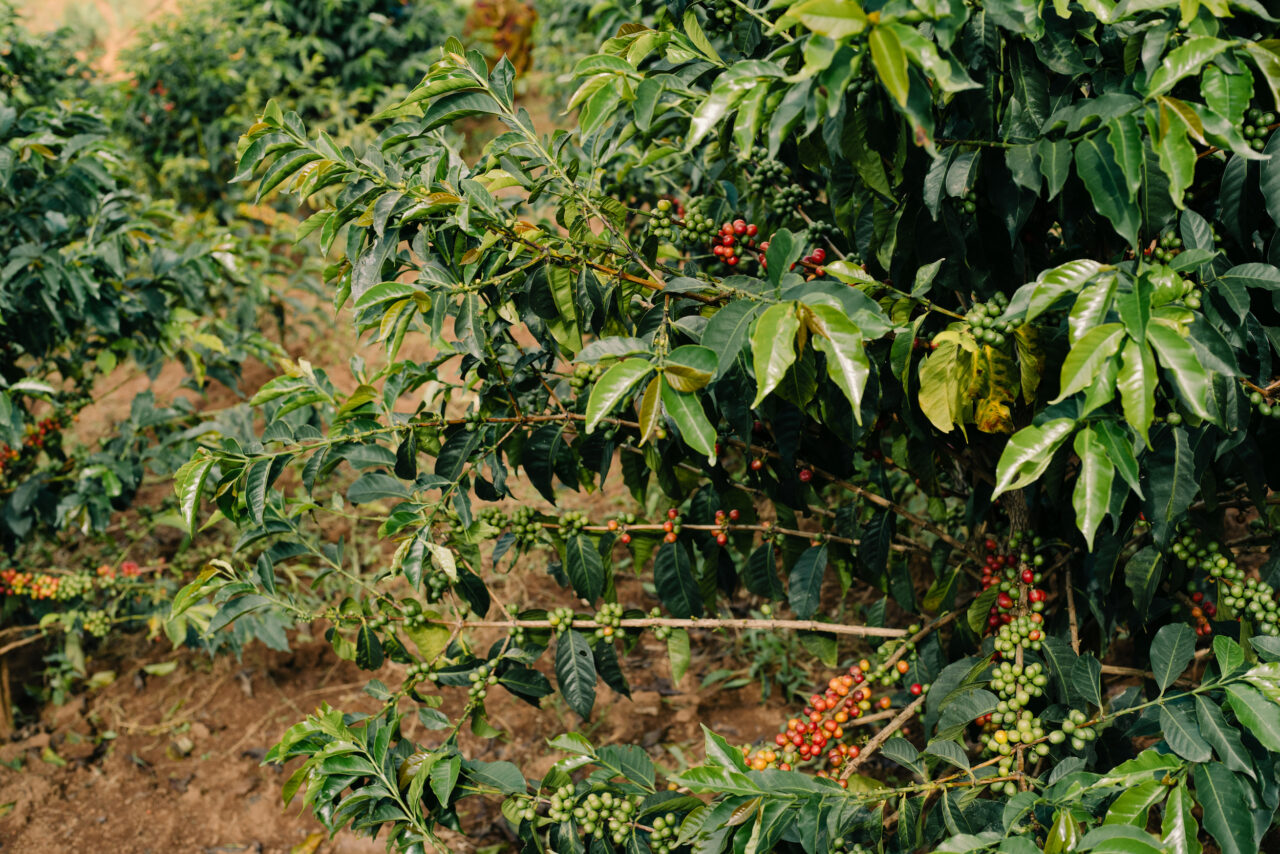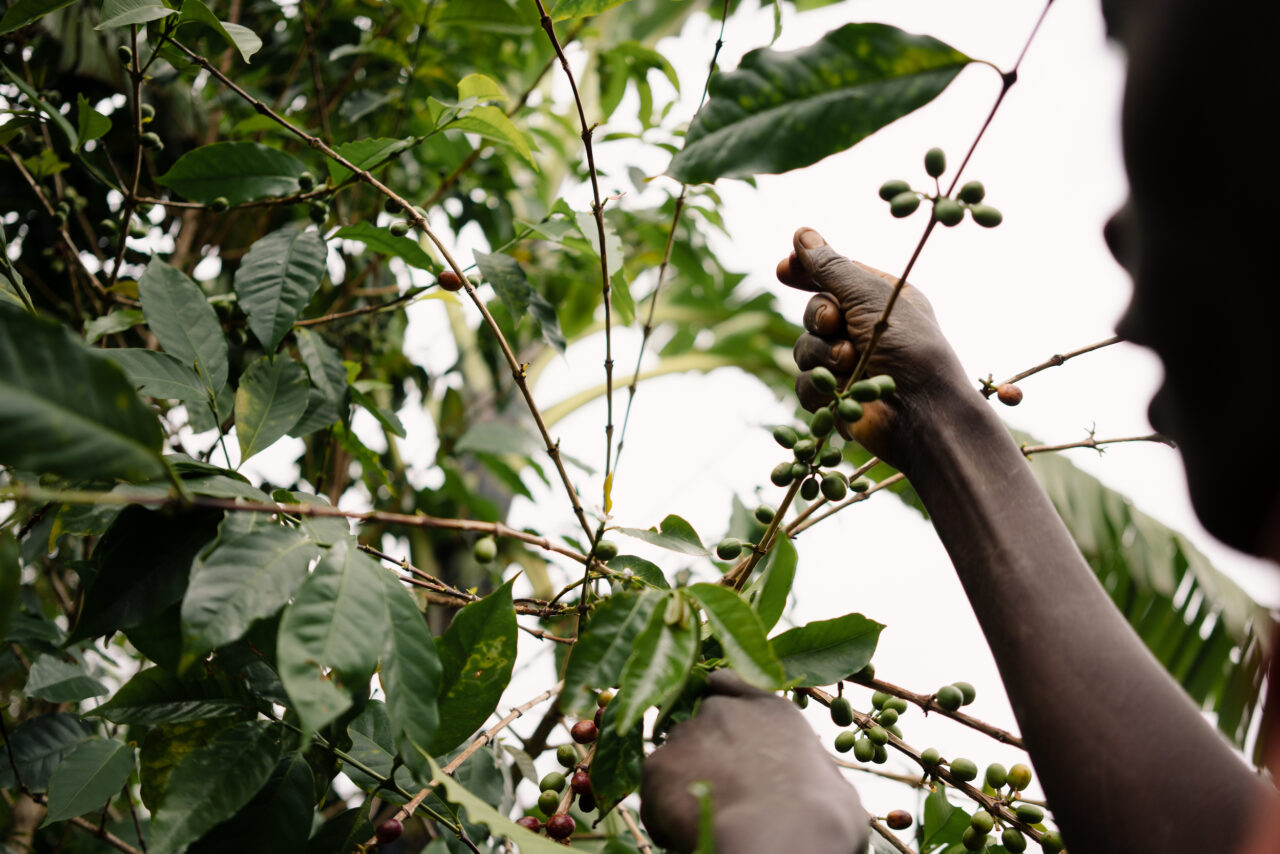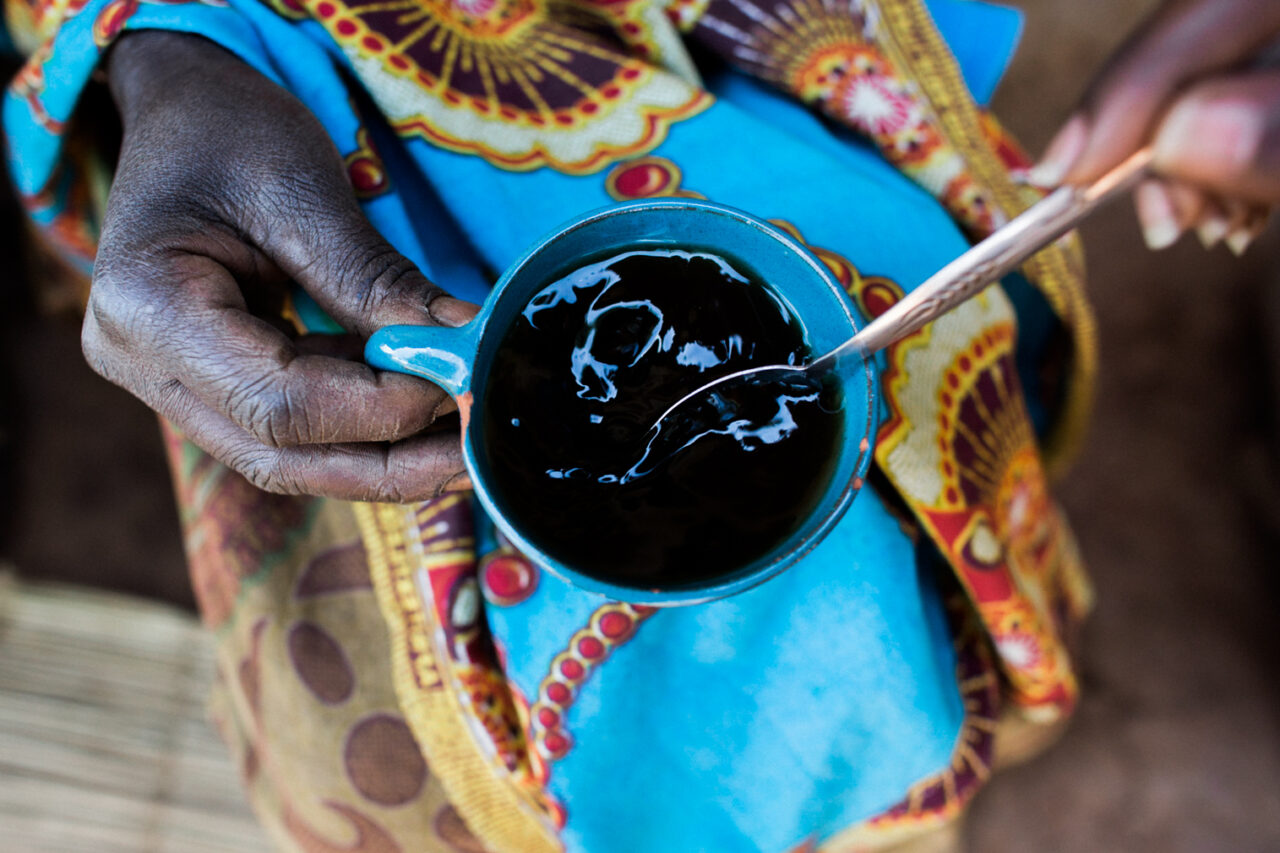
We met Antoine standing barefoot on his farm, surrounded by coffee trees. At fifty-four years old, he’s no stranger to farming coffee. As a young boy, he helped his parents on their farm by collecting leaves for mulch and learned how to prune and stump coffee trees. Since then, there have been significant changes for coffee farmers in Burundi- not all good. ⠀
“Thirty years ago, the soil was good. Even without fertilizer or mulch, our production was enough. Now, the soil is not good. We have to work hard to find mulch and our production is low without fertilizer. We use fertilizer from the government but sometimes it comes late and when it’s late, it cannot feed the coffee trees’ roots.”
Antoine, a coffee farmer from Gaharo hill
Back in 2011, before Long Miles was founded, the coffee farming communities that we were interested in working with were producing less than half a kilogram of coffee cherries per tree. Although it’s not the only solution to improve soil health and productivity, we quickly realized that having access to fertilizer could significantly impact farmers’ annual coffee production and income.

In Burundi, however, fertilizer is a state-controlled product that is only accessible through the national coffee board. One has to apply and pay for fertilizer in advance- something that most subsistence farmers in Burundi can’t afford to do. That first year we put down an advance on fertilizer for the communities that we were working with, but it soon became apparent that there was no guarantee it would arrive in time for the coffee season; no guarantee there would be enough for everyone who needed it.
“Since then, there have been significant changes for coffee farmers in Burundi- not all good.”
By the time the fertilizer did arrive, the rainy season had just begun. Any fertilizer that was used on farmers’ land washed away with the rain, eventually running off into local water sources. It was incredibly frustrating for our team to stand by and watch this happen. Coffee farmers in Burundi have, for years, been paying for a fertilizer that is delivered too little too late to be useful. This realization was the turning point for our decision to “go organic”. By doing so, we could take control of how we address farming challenges and tackle soil health in a way that could be all-inclusive and better for the environment.
Step onto a coffee farm in Burundi and you may take note that coffee farmers are already using organic practices: homemade compost made from leftover coffee cherry skins and animal waste is fed to the soil, stacks of grass and leaves are collected by hand and placed as mulch around farmers’ crops. These commonly found ‘organic practices’ are not always done by choice, but because of farmers’ limited access to farming inputs.

According to the World Bank, eighty percent of Burundi’s 11.6 million population is employed by the agriculture sector (World Bank, 2020). 600,000 of those 11.6 million households are coffee farmers, which means that one in twenty people depend on coffee in Burundi (African Fine Coffees Association, 2020).
“…one in twenty people depend on coffee in Burundi.”
What would an intentional shift towards organic farming look like in Burundi? Some might argue that not much will change. With limited access to fertilizer, insecticides, and pesticides, smallholder coffee farmers will continue using natural resources and finding innovative ways to source the inputs that they need. On the other hand, a farmer’s cost of production may increase with no guarantee that the practice will pay off; a risk that coffee farmers need to ensure they can afford to take.
As coffee producers, we also need to turn our attention to the policies at the country-level. There is currently an ‘agricultural intensification policy’ that is focused on increasing the country’s crop and food production. The government’s expectations of this policy coupled with smallholder farmers’ ability to source the necessary farming inputs may limit their ability to shift towards organic farming practices.
“What would an intentional shift towards organic farming look like in Burundi?”
Is it worth the risk? An organic certification wouldn’t change the quality of the coffee we produce, and it wouldn’t necessarily mean that coffee can be sold at higher prices. The average Burundian coffee producer might get paid more if they sell their coffee on the commodity market, but we’re not producing commodity coffee; we’re producing specialty coffee. As Epaphras Ndikumana, our Social & Environmental Impact Leader points out, “Most of the coffee produced in Burundi is sold as commodity coffee so whenever there’s potential to scale up a coffee farmer’s profit, it is worth it.”
“Long Miles is not necessarily going to recoup the cost that it takes to get a certification- that’s not the motivating factor. The motivation behind our pursuit of organic farming is so that future generations of coffee farmers in Burundi can farm coffee sustainably.”
Ben Carlson, co-founder of Long Miles Coffee.
We’ve recently heard from coffee producers in Honduras, Brazil, and Colombia that shifting to organic farming is yet to pay off for coffee farmers. Knowing that the transition to organic can take years, if not decades, is it worthwhile considering “going organic” in Burundi?
“If you’re talking about one farmer? Yes. If you’re talking about thousands of coffee farming families who haven’t officially farmed organically before? Again, yes, but it’s a long-term investment.”
Getting all 5,500 coffee farmers that we work with within Burundi certified would be incredibly costly and would require a significant amount of inputs. Even then, it would be hard to control every person’s activities to make sure that their actions maintain the integrity of the organic certification.
“For us, it’s not about the certificate; it’s about farmers having the inputs and knowledge to farm organically themselves. It’s worthwhile pursuing if we want to work in other coffee-growing regions, which we do. Long Miles will be producing coffee at a Kenyan washing station this year. We are also starting an organic coffee farm in Kenya, and would like to start one in Uganda too.”

As coffee producers, we can see the value of shifting to organic farming practices, but is buying and drinking organic coffee important to end-consumers?
“From my experience as a high-end specialty coffee roaster and retailer, organic certification matters to the consumer but not enough to make decisions based on the organic certification. I would classify it as a value add, a bonus to drinking delicious coffee which seems to be the higher priority. While certifications clearly matter to a percentage of consumers it does not seem to be the main driver for customers outside of higher priorities like flavor, origin, price, location of the retailer.”
Oliver Stormshak, co-owner, CEO and Green Coffee Buyer of Olympia Coffee
Our transition towards organic farming is moving at a slower pace than a certification calls for. We’re listening to and learning from the communities of coffee farming families that we work with, along with coffee producers in other nations who have gone before us to determine the feasibility of producing organic coffee. Long Miles’ pursuit of organic farming is a long-term commitment to empowering future generations of coffee farmers with the knowledge and inputs that they need to produce coffee sustainably. With Burundi as our base, we’ll be able to take what we’ve learned to start producing organic coffee in other parts of East Africa too.
References
African Fine Coffee Association (AFCA). (2020). AFCA Chapters: Burundi. [online]. Available at: https://afca.coffee/portfolio-item/burundi/. [Accessed 26 October 2020].
World Bank. (2020). The World Bank in Burundi: Overview. [online]. Available at: https://www.worldbank.org/en/country/burundi/overview. [Accessed 26 October 2020].


This is a topic that is consistently on my mind as a coffee roaster with a farming and organic farming background. For the sake of the lands vitality and the people that depend on it for their own vitality, it seems unquestionable that transitioning to organic farming practices is now necessary. I think the big uncertainty which you point out here is how? Specifically, how is it paid for? Surely if all the costs fall onto the farmer, it is unlikely to be a successful transition. In my mind, there is a need for other businesses along the coffee supply chain, and ultimately the consumer too, to start to contribute to the cost of this transition. I hope more organizations like Long Miles, and my own place of employment, Fika Coffee, can contribute to this transition in meaningful ways over the years, decades, to come.